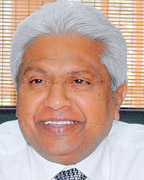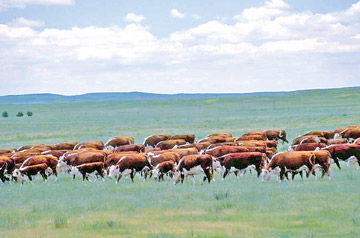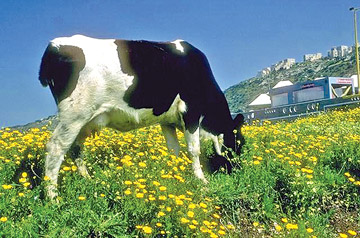Self-sufficiency in milk, our aim - Milco chairman
By P. Krishnaswamy
Milco (Pvt) Limited, the primary milk producing company in the
country, is facing the challenge of providing the nation's milk
requirement, in the wake of the withdrawal of all brands of imported
milk powder and other milk supplements from the shelves in all sales
outlets due to the detection of the toxic dicyandiamide (DCD) in the
products.
 |
 |
| Minister
Arumugan Thondaman |
Milco Chairman
Sunil Wickramasinghe |
 Milco Chairman Sunil Wickramasinghe elaborated on the measures
initiated by them under the directive and assistance of the Ministry of
Livestock and Rural Community Development to fast track self-sufficiency
in milk and handle the current situation. Milco Chairman Sunil Wickramasinghe elaborated on the measures
initiated by them under the directive and assistance of the Ministry of
Livestock and Rural Community Development to fast track self-sufficiency
in milk and handle the current situation.
Wickramasinghe expressed confidence that the country will produce 80
percent of the total milk requirement in the next two to three
years,followed by self-sufficiency before long . Milco is extending
assistance and incentives to all stakeholders, entrepreneurs and
investors with the request to join hands with the Government to
facilitate and speed up the process of achieving self-sufficiency in
milk and help the country to save a staggering US $ 400 million per year
to the national coffers , he said.
Wickramasinghe told the Sunday Observer:
In my view the present situation with regard to milk has become a
national issue. Some consignments of imported milk have been found to be
contaminated with DCD and whey protein, unfit for human consumption. We
have had such complaints in the past too. It establishes the fact that
whatever is produced in one's country is far better and people now
understand this reality. It is fresh and is a product of the country.
The other advantage is that if any defects are found it could be traced
and rectified . So far we have not detected any such defects in the
local products. But, I believe one can make mistakes because they are
performed by machines and humans.
It is crucial that one follows stringent quality release norms and
observe the release procedure of the final product. There is an
internationally accepted procedure to release fresh milk, milk powder
and other supplements, such as yoghurt. A guarantee on the shelf life of
the product has to be given under this procedure. So I cannot understand
how these products were released to the market without following the
accepted norms. Do they take it for granted that everything is okay when
it comes to a developing nation? They were cautioned many months ago of
the suspected presence of toxic material in their products. Despite this
a contaminated stock has been released to the market.
It is encouraging that we have many experts on the subject in the
country. We have to appreciate that they have spoken out their views. I
have listened to the TV programs and debates on the subject. They are
making a practical, knowledgeable and patriotic approach to the problem.
It is gratifying that the country has a knowledge bank on virtually all
food related matters and that they are resolute in their stand and will
not bow down to any outside force.
The current situation calls for remedial measures. But I cannot think
of any measure other than fast tracking our goal towards
self-sufficiency. This is a blessing in disguise because we are now
under pressure to speed up the goal towards self-sufficiency. We are
faced with a big challenge .
 The detection of toxic material in milk is not an isolated incident.
There may be many more hazardous substandard food items we import. Money
has overtaken ethics in the world today. It is due to these reasons that
the number of cases of cancer, diabetes and other diseases are
increasing by the day . I heard Dr.Padeniya saying in a TV program that
10 years ago he had not come across a single case of child diabetes.
Today, an alarming 11 percent of the children are suffering from this
dreaded disease, he said. It is due to the food and bad habits of
eating. Food safety should be our first priority. Gary Romano, has
resigned as Managing Director of Fonterra, New Zealand's milk giant
accepting responsibility for the presence of toxic material in their
milk products although the company has disputed our findings. So, we are
now at a juncture where we have to explore all our potential for
producing quality milk and other supplementary products. The plantation
areas in the central hills are ideal for dairy farming. Many people from
these areas are taking to dairy farming driven by the increased average
farm gate price of liquid milk up to Rs.50 per litre and other
incentives offered by Milco. The detection of toxic material in milk is not an isolated incident.
There may be many more hazardous substandard food items we import. Money
has overtaken ethics in the world today. It is due to these reasons that
the number of cases of cancer, diabetes and other diseases are
increasing by the day . I heard Dr.Padeniya saying in a TV program that
10 years ago he had not come across a single case of child diabetes.
Today, an alarming 11 percent of the children are suffering from this
dreaded disease, he said. It is due to the food and bad habits of
eating. Food safety should be our first priority. Gary Romano, has
resigned as Managing Director of Fonterra, New Zealand's milk giant
accepting responsibility for the presence of toxic material in their
milk products although the company has disputed our findings. So, we are
now at a juncture where we have to explore all our potential for
producing quality milk and other supplementary products. The plantation
areas in the central hills are ideal for dairy farming. Many people from
these areas are taking to dairy farming driven by the increased average
farm gate price of liquid milk up to Rs.50 per litre and other
incentives offered by Milco.
The number of milch cows has also increased. The contribution from
the Northern and Eastern provinces, improved infrastructure including
the several chilling centres of large, medium and small scale milk
collecting centres and the dairy development programs introduced by the
government contributed to the overall improvement in the industry.
Pasture land for medium scale dairy has been an issue for sometime.
The Livestock and Rural Community Development Minister Arumugan
Thondaman convened a meeting of all CEOs of the plantation management
companies and got them to agree to release some extents of lands for
pasture development. He proposed that we have common cattle sheds in all
divisions of the plantation estates which will facilitate maintenance of
the dairies.
Minister Thondaman visited Jaffna about a year ago and held
discussions with the authorities on promoting dairy farming in the
province. Consequently, we started dairy farming projects on a large
scale in Oddusuddan, Mullaitivu, Mallavi and Kilinochchi and other
areas.
History bears witness to the fact that the Jaffna farmers had been in
the forefront of dairy farming and produced the highest quantity of
milk. Now, with peace and normal life having been restored in the
Northern and Eastern provinces, the traditional dairy farmers have
returned to their professions and the Ministry and Milco are extending
them incentives to boost milk production.
Our milk products are of a better quality because our liquid milk
reaches the market within two days . There is a big demand for our
products. It has a shelf life of 35 days. And soon after release within
seven days it is in the market.
It is not possible for us alone to cope with the present demand. All
local stakeholders must join in our efforts to meet the demand and reach
self-sufficiency.
Milco expects at least a fifty percent market share on milk products.
Minister Thondaman has given us the green light to take measures to
invite new investors to the dairy farming sector and we are developing
dairy villages. We give incentives for pasture development and cattle
sheds. A series of projects have been initiated to achieve
self-sufficiency in milk. We have taken measures to popularise liquid
milk and started TV and newspaper publicity programs in the effort to
educate the people on the benefits of liquid milk.
With the addition of the 2,000 hybrid cows imported from Australia
the National Livestock Development Board (NLDB) now has 12,000 cows in
its 32 cattle farms in the country and the imported cows are
contributing towards the government's target of achieving
self-sufficiency in milk. The imported cows are in the Bopatalawa,
Diyagama and Menikpalama farms. Before the import of the cows, the total
milk production in the NLDB farms was 8,000 litres per day whereas after
the import of cows, milk production at the Menikpalama farm alone
reached 8,000 litres. Each imported cow gives a minimum of five calves
and it has been ensured under the artificial sex semen insemination that
4 of them are females. The Cabinet recently approved a paper tabled by
Minister Thondaman to set up another farm with 2,500 high quality cows
and the project will be completed within this year.
The Batticaloa and Ampara regions have recorded a rapid development
in milk production, pushing many other regions behind. In the entire
Nuwara Eliya region there are over 3,000 farmers supplying an average of
22,000 litres per day to MILCO collecting centres in Kotagala,
Punduloya, Holbrook, Ragalla, Norwood, Gampola and Nawalapitiya, he
said.
The farmers are in the membership of 243 Farmer Management Societies
which represent their interests. They supply veterinary drugs to the
farmers at subsidised prices. Building materials to the value of
Rs.30,000/- are being supplied to members of the societies for the
renovation of cattle sheds.
The materials supplied by the Livestock Development Ministry are
distributed among deserving farmers through the nearest government
veterinary centres in a phased manner.
A majority of the farmers engaged in dairy farming in the estates do
not own any grasslands and where farmers own lands, MILCO supplies grass
cutting to develop grasslands. The country has a total of 230,000
farmers at present, including the North and East.
MILCO is working on establishing collecting centres in the North
while a large number of collective centres have already been established
in the Eastern Province, with more to be established in the future. The
import tax on all equipment needed for processing milk has been waived
by the Government. |


